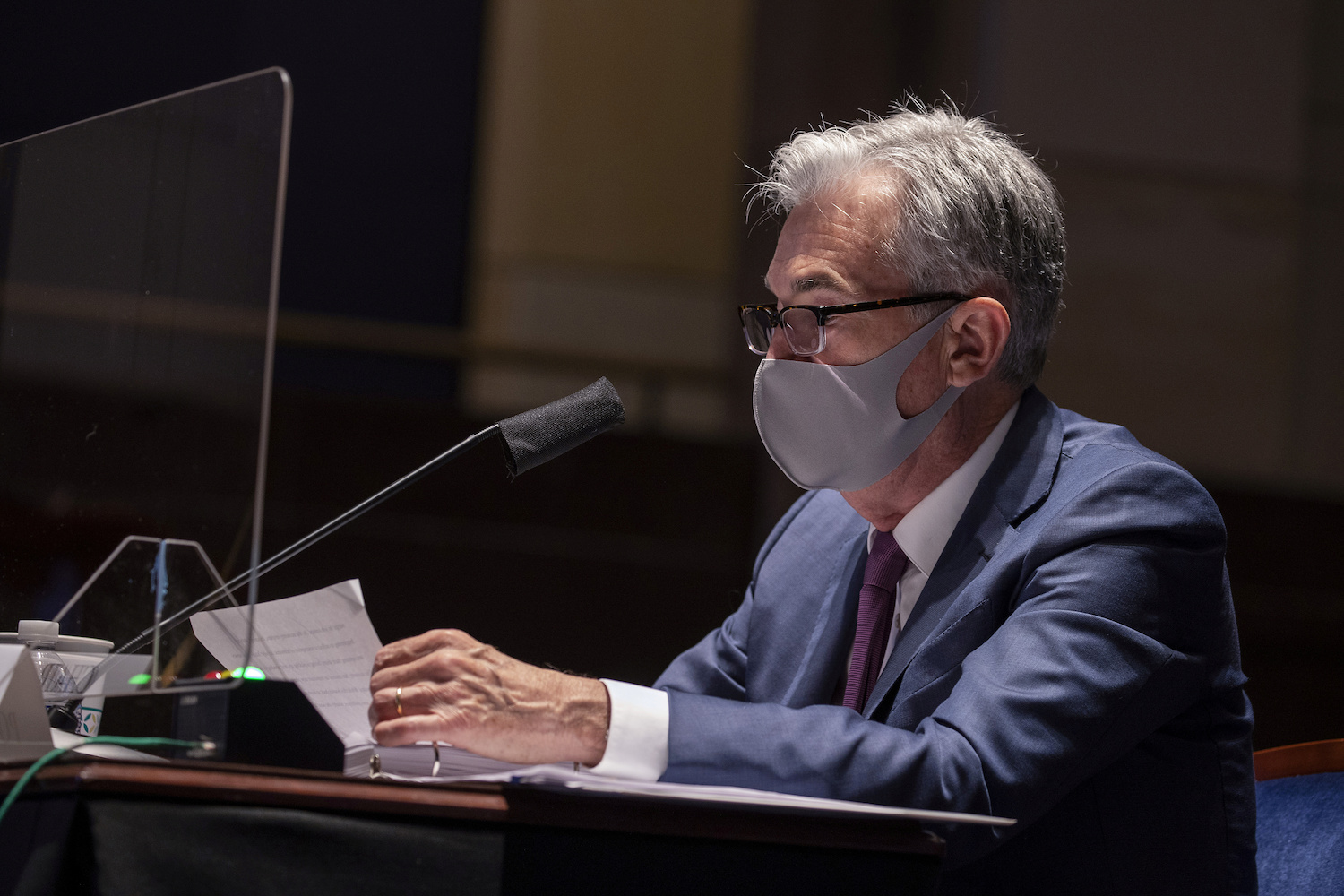(ATF) Hong Kong: Investors got a boost from the US Federal Reserve’s framework review that assured markets that interest rates would stay lower for longer, giving a lift to risk assets such as emerging markets stocks and bonds.
But Japanese investors received a jolt from the resignation of Prime Minister Shinzo Abe, whose market friendly policies may not be adopted by his successor. Shortly after the news emerged, the Nikkei 225 dropped 2.10%. It ended off lows, down 1.41%.
The rest of the Asia Pacific region was very much focused on the Fed’s shift.
“The Federal Open Market Committee’s shift towards a flexible average inflation targeting strategy is particularly relevant since inflation has indeed stayed persistently below target for most of the last decade,” HSBC’s US economist Ryan Wang said. “We continue to expect the FOMC to hold the federal funds target range steady at 0-0.25% through at least the end of 2021.”
Overnight, US central bank switched its focus to employment and showed it was less worried about inflation in formulating monetary policy. The Federal Reserve issued a revised statement on longer-run goals and monetary policy strategy.
China’s CSI300 advanced 2.39% and Hong Kong’s Hang Seng index added 0.56%. Gold extended gains, rising 1.25% to $1,953 per ounce and US Treasuries recovered from overnight selling, with the 10-year yield dropping 4 basis points to 0.74% from the morning levels.
But Australia’s S&P ASX 200 fell 0.86% after fresh coronavirus outbreaks forced officials to issue public health alerts and impose restrictions. A sustained rise in daily Covid-19 cases in Victoria made investors cautious.
“We prefer markets and companies that have handled Covid well. For example, the way China has handled Covid, it has been very quick and effective. That plays a role in default risk management. China has shifted tail risk by their response,” said Paul Sandhu, head of Multi-Assets Quant Solutions & Client Advisory, APAC, at BNP Paribas Asset Management.
‘Maximum employment’
One significant revision was the Fed’s view on maximum employment with the central bank underlining it as a “broad-based and inclusive goal” and saying that it will be driven by its “assessments of the shortfalls of employment from its maximum level” rather than “deviations from its maximum level.”
Powell said in his post-statement speech that “this change may appear subtle, but it reflects our view that a robust job market can be sustained without causing an outbreak of inflation.”
Bank of Singapore chief economist Mansoor Mohi-uddin said: “The Fed’s dovish move will continue to support risk assets, weaken the USD, steepen the US Treasury yield curve as inflation expectations rise, while still keeping yields at very low levels.”
Analysts said the steepening of the yield curve – at the day’s lows the gap between the 2- and 10-year yields widened to 62 basis points from 55 before the Fed’s review – reflected expectations that short-term yields would be well anchored.
Bank of Singapore’s Mohi-uddin expects the new strategy will lead to the Fed keeping its funds interest rate at 0.00-0.25% for up to the next five years.
“The US Treasury yield curve steepened overnight as expected, reflecting that markets do expect the long-term growth and inflation outlook to improve with this new framework,” Tai Hui, chief Asia market strategist at JP Morgan Asset Management, said.
“The search for income for Asian investors will continue – this should be supportive of risk assets such as equities, corporate bonds and emerging market fixed income.”
On the data front a comprehensive view of global economic conditions midway through the third quarter will be provided by the worldwide PMI surveys next week culminating with the US non-farm payroll report.
“PMI data will add clues as to the durability of China’s upturn, while GDP in India and Australia are expected to show economies contracting sharply. The RBA is meanwhile expected to hold rates unchanged at 0.25% but analysts will be eager for clues as to what might trigger further action,” Bernard Aw, principal economist at IHS Markit in Singapore, said.
ATF China Bond 50 Index: Energy and utility names weigh on ATF indices
Also on Asia Times Financial
Japanese investors rattled by news of Abe resigning
India’s RBI activates ‘Operation Twist’ to soften interest rates
US big tech dominates markets after monster rally
Fiscally challenged China wants smaller firms to issue bonds, not take loans
China sees blockchain as social services tool
Asia Stocks
# Japan’s Nikkei 225 index slips 1.41%
# Australia’s S&P ASX 200 eases 0.86%
# Hong Kong’s Hang Seng index adds 0.56%
# China’s CSI300 jumps 2.39%
# The MSCI Asia Pacific index edges up 0.28%.
Stock of the day
Kingdee International Software rose as much as 11.7% after the company raised over $300 million via a fresh issue of shares.
























